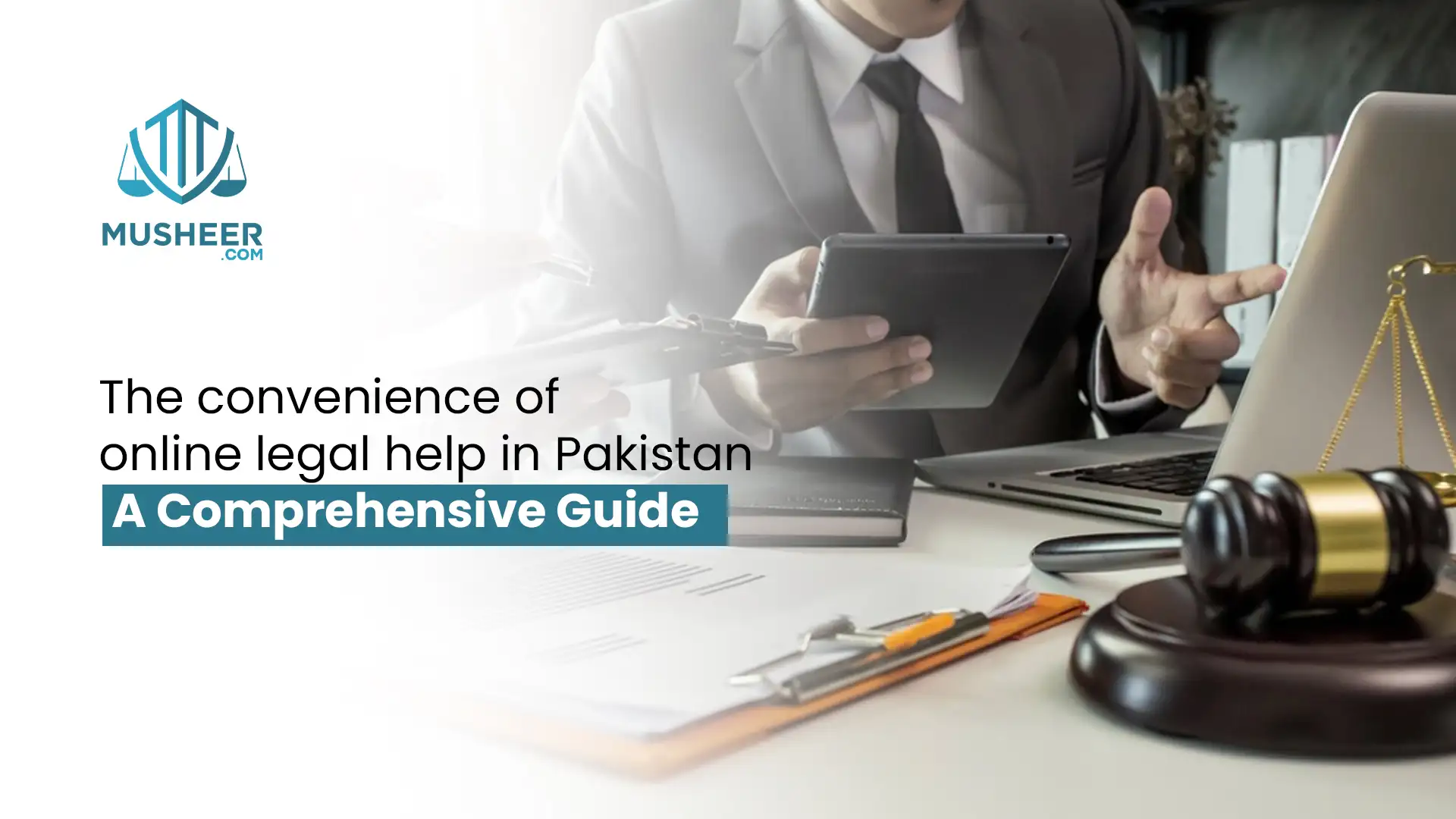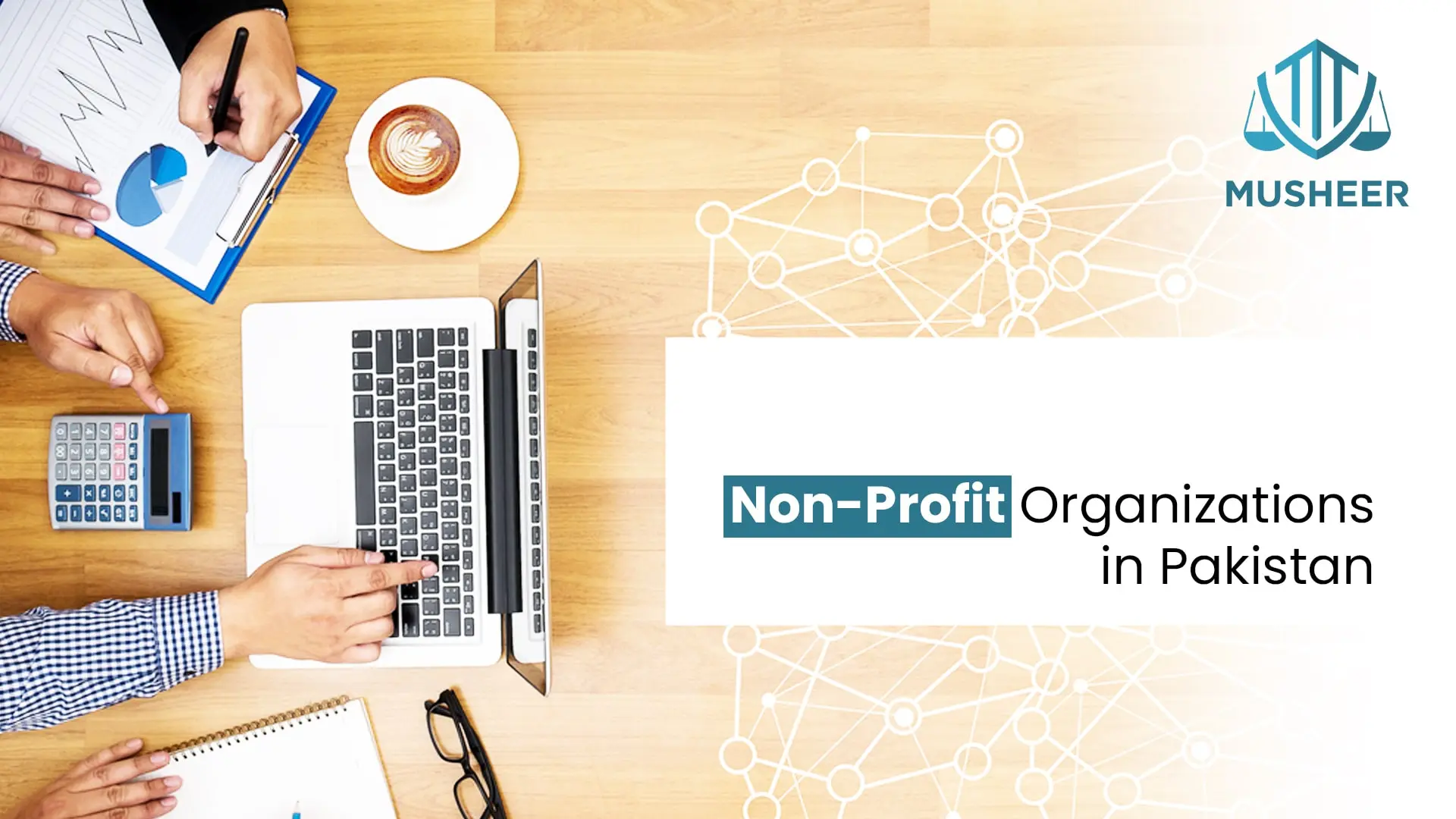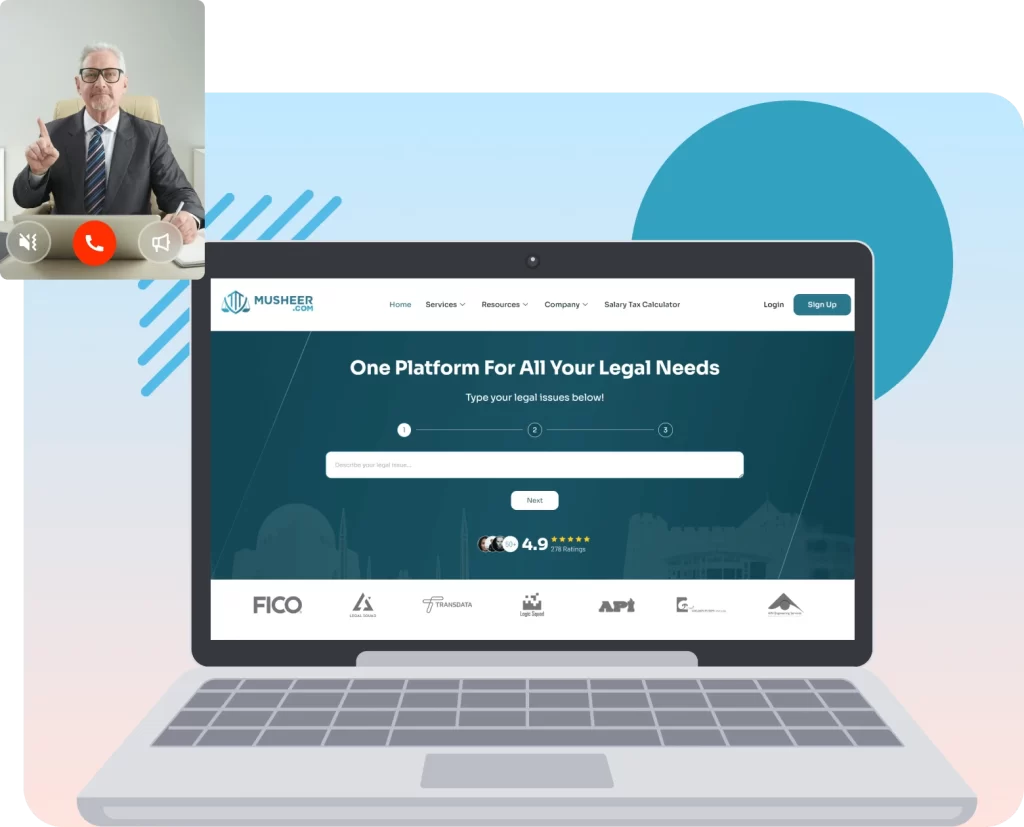Embarking on the path to create a trust in Pakistan is a significant step towards making a positive impact on your community. If you're eager to contribute to social causes and navigate the process of trust registration in Pakistan, you've come to the right place.
This blog is your go-to guide, explaining the ins and outs of the legal procedure for the registration of a trust. We'll walk you through the legal aspects, what you need, and the step-by-step process. This guide will empower you with the knowledge to turn your charitable vision into reality. Let’s explore the straightforward process of trust registration in Pakistan.
Types of Trusts
There are two types of trusts that can be formed and registered. One is a public charitable trust, and the other is a private trust. Let’s explore the definitions of the two types of trusts.
Public Charitable Trust
Public charitable trusts are legal entities formed for a positive change to uplift a society. Picture them as the guardians of goodness, formally established through a trust deed – a document crafted by a settlor (the person creating the trust). These trusts stand tall with a clear mission i.e., to champion the well-being of society. From supporting the underprivileged to fueling education, healthcare, and environmental causes, they're on a quest for a better world in several other sections of the community. In essence, these trusts channel resources where they matter most, ensuring a resounding impact on the greater good.
Private Trust
A private trust is like a personalized support system designed to cater to specific individuals or families. Unlike a public charitable trust, a private trust is about focusing on the well-being of particular people. It's like a tailor-made plan crafted through a legal document called a trust deed. This document lays down the rules, dictating how the trust's assets should be managed and distributed for the benefit of those named in the trust. Essentially, a private trust operates on a more intimate scale, aiming to safeguard the interests and needs of specific individuals, ensuring they receive the support and provisions outlined in the trust deed.
Insights into Trust Registration Laws and Guidelines in Pakistan
Prior to 2020, trusts were formed in accordance with the Trusts Act of 1882. However, as of the amendment, each province now holds complete autonomy in matters related to trust registration and other trust-related activities. Here are the post-amendment links for different provinces in Pakistan and the capital territory:
- The Islamabad Capital Territory Trust Act, 2020
- The Punjab Trusts Act, 2020
- The Sindh Trusts Act, 2020
- The Khyber Pakhtunkhwa Trust Act, 2020
- The Balochistan Trusts Act, 2020
Things You Need for Registering a Charitable Trust in Pakistan
To make a charitable trust work, you need three things: the person creating it, the one managing it (trustee), and the person or group benefiting from it. If the trust's goals aren't clear, it might not succeed. Charities usually create trusts to help society or a specific part of it. Public law guides these trusts, and they're a bit like private ones. The difference is that charitable trusts stick around as long as they're doing good things, no matter the specific goals.
Main Conditions for Forming a Trust
For a trust to be set up, two main things must be in place:
- The trust needs to own something, whether it's money or property like land or buildings.
- The main aim of the trust should be to do good for others, like charity or social benefits.
So, for a trust to be valid, it has to meet these criteria or 'certainties.' But, here's the interesting part: public charities have a bit more flexibility. Like private trusts, they also need to be certain about their intention to make a binding trust and the assets involved. Private trusts fail if their beneficiaries aren't clearly stated, but public charitable trusts can keep going even without specific beneficiaries, as long as the general goal is charitable.
You can create a trust for any lawful purpose, and it can be canceled at any time. The Trust Act, which covers private acts of public charity, gives a lot of freedom to those creating trusts. Plus, the Trust Act covers all areas of Pakistan, making it accessible to everyone.
The Procedure for Creating a Trust in Pakistan
You can make a trust for immovable things like land in two ways. In the first way, there's proof in a will, and in the second way, there's proof but not in a will. But, if it's about land, you can't just say it out loud - you have to use a properly registered document.
For things that are movable, like belongings, you can make a trust by using a document or just by giving the things to the trustee and saying what to do with it. If the instructions are written, a trust can be made with a non-testamentary document, which might or might not be registered.
Now, when it comes to ending or dissolution of a trust under the Trusts Act, here are the conditions:
- The goal is reached
- It becomes against the law
- The goal isn't achieved
- The trust is canceled or revoked
Documents Required for Welfare Trust Registration in Pakistan
Here's a simplified version of the documents required for trust registration:
Memorandum of Association
This paper has the trust's name, main office address, goals, and the names of the trustees.
Trust Deed (on a Stamp Paper)
This document is crucial and outlines the trust's details.
Affidavit
A written statement confirming the trust details.
Copies of ID
Make sure to provide copies of your CNIC or passport.
Proof of Address
Show where the registered office is located.
Rental Agreement/NOC
If you're renting the space, include an agreement or a No Objection Certificate.
Affidavit on Schedule-III (No Legal Processing/No Criminal Record)
A statement saying there are no legal issues or criminal records.
Bank Challan
You need to pay the bank challan for the registration process. The challan fee may vary depending on the province.
Photographs and Signatures
Include photos, signatures, and thumbprints of trustees and authors in the current deed.
Letter of Authorization
If someone else is handling the registration, you'll need a letter saying they're authorized.
Pro Forma for the Trust
A form with basic information about the trust. The Director or Assistant Director might ask for more documents if needed.
Elements of a Trust According to the Trust Act of 1882
Creator of the Trust
The ones who make or announce the trust are called the "author of the trust."
Manager of the Trust
Those who agree to take care of the trust are known as "trustees."
Person Benefiting
Someone who gains from the trust is the "beneficiary."
Trust Property or Trust Money
The things or money in the trust are called "trustee-property" or "trustee-money."
Good Things for the person Benefiting
The rights of the person benefiting are called their "beneficial interests,". Beneficial interests are the legal claims against the trustee who owns the trust.
Paper for the Trust
Formally called "instrument of the trust", is a declaration of the trust.
Essential Things You Should Know About the Creation of a Trust
You can make a trust for anything that's allowed by law. But, there are some things that are a no-go.
Lawful Purpose
- A trust can be created for any lawful purpose.
- The purpose must be legal and not break any laws.
Legally Forbidden
- Trusts are not allowed if they involve things that are legally prohibited.
Contrary to Law
- If the trust, when permitted, would go against any existing laws, it's a no-go.
Fraudulent Activities
- Trusts cannot be set up for fraudulent or sneaky activities.
Affecting Others
- If the trust could harm someone else or property, it's not allowed.
Immoral or Against Public Policy
- The court won't approve trusts if they are considered immoral or against what's considered right for the public.
Declaration of Trust
The person creating the trust can set it up in a way that they take care of things but not as the owner – instead, like a caretaker called a trustee. This means they don't have to officially move the stuff around. In this situation, the owner needs to make a formal statement, called a declaration of trust, and be the only trustee. But remember, this declaration has to be officially recorded under the Registration Act.
What Beneficial Role Public Charitable Trusts Play within the Pakistani Society
Alleviation of Social Problems
Public charitable trusts actively engage in initiatives aimed at addressing and alleviating social issues such as poverty, hunger, and inequality. They work towards creating a more equitable and just society.
Moreover, these trusts may work towards taking care of the environment and backing cultural and artistic projects. They usually pay attention to places where the government might not have enough resources, giving important help and filling in the gaps in services.
Increase in Educational Opportunities
Trusts often focus on promoting education by establishing schools, scholarships, and educational programs. By doing so, they contribute to enhancing literacy rates and providing opportunities for skill development.
Providing More and Better Healthcare Facilities
Public charitable trusts play a vital role in improving healthcare access and facilities. They focus on establishing hospitals, clinics, and medical programs to ensure that the Pakistani community has access to quality healthcare services. Particularly in underserved areas, such works are done to ensure affordable and accessible healthcare services for all.
Enabling Disadvantaged Communities
Trusts target the needs of disadvantaged and marginalized communities. By providing resources, support, and empowerment initiatives, they aim to uplift those who are facing social or economic challenges.
Maximizing Charitable Works through Funding and Collaboration
Charitable trusts serve as effective platforms for pooling resources and fostering collaboration. By bringing together donors, volunteers, and organizations, they amplify the impact of charitable works and initiatives.
Public charitable trusts get their money from people, companies, and government grants to help with their projects. By teaming up with other entities like NGOs, government groups, and companies, these trusts make a bigger difference by bringing together their money and knowledge.
Benefits of Establishing & Registering a Trust
Legal Recognition
Registering your trust is like getting an official stamp. It proves that the trust is acknowledged by the law, making it real and valid.
Asset Protection
Think of registration as a cape for the trust's belongings. It shields the assets and makes sure they're safe.
Tax Benefits
By having your trust registered, you become eligible for being exempted from income tax.
Transparent Governance
Registration ensures that the trust plays by the rules. It's like having a clear rulebook so everyone knows what's going on.
Ease of Operations
Being registered makes things smoother. The trust can carry out management of finances, sign contracts, and perform its legal role more easily.
Recognition of Trusteeship
Registration serves as a formal validation, conferring a distinguished status upon trustees. It signifies a declaration that these individuals bear the responsibility of stewardship, accompanied by a clear delineation of the prescribed regulations they adhere to in managing and safeguarding entrusted assets.
Enhanced Legal Standing
Registration makes the trust stand tall in the legal world. It's like having a strong foundation, making it easier to solve problems if they come up.
Now that we have talked about the process, laws, and other things relating to registering a trust in Pakistan, let us answer some of the most asked questions about this topic.
Frequently Asked Questions
What is a Trust Deed?
A trust deed is an important legal document that outlines the details and rules of a trust. It serves as a kind of instruction manual for how the trust works and what its goals are. The trust deed typically includes information such as the name of the trust, its main office address, the objectives or purposes of the trust, and the names of the trustees (the people responsible for managing the trust). The person making the trust creates it when they show, either by words or acts that:
1- They want to make a trust.
2- What the trust is supposed to do
3- Who the trust is supposed to help
4- Transfers the trust property to the trustee (unless the trust is declared by will or the author of the trust is himself the trustee).
Who can create a trust?
In Pakistan, anyone who is legally capable - meaning they are of sound mind and have reached the age of majority - can create a trust. This person is often referred to as the "settlor" or the "author of the trust." The settlor is the one who decides to establish the trust, outlines its objectives, names the beneficiaries, and appoints the trustees who will manage the trust property.
It's important that the person creating the trust understands the implications and responsibilities involved in setting up and managing a trust. While there are legal requirements and processes to follow, the ability to create a trust is generally open to individuals who meet the legal criteria in Pakistan.
Who can be a trustee?
In Pakistan, the position of a trustee is usually open to individuals or entities who are considered legally competent. The following are common characteristics of individuals who can serve as trustees:
Legal Capacity
The trustee must have the legal capacity to enter into a trust arrangement. This typically means they should be of sound mind and not disqualified by law from holding such a position.
Majority Age
Trustees should have reached the age of majority, which is 18 years in Pakistan. Minors are generally not considered suitable to act as trustees.
Sound Judgment and Integrity
Trustees are expected to act with honesty, integrity, and diligence in managing the trust property.
Consent to Act
The person or entity chosen as a trustee should be willing to accept the role. Being a trustee is a voluntary position, and the individual must consent to fulfill the duties outlined in the trust deed.
What is dissolution under the Trusts Act?
A trust can come to an end in case:
- The goal of the trust has been achieved
- The trust is revoked
- The purpose of the trust is not achieved






